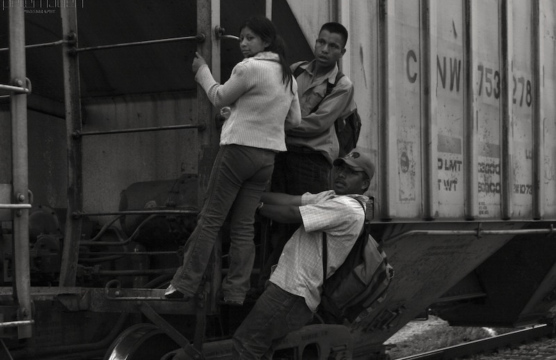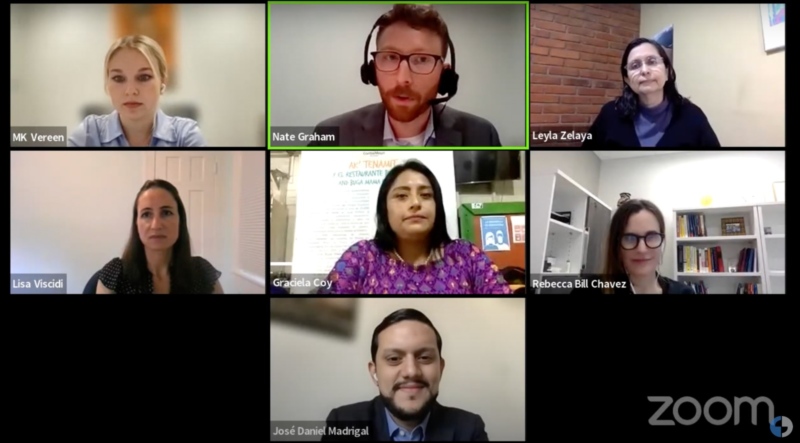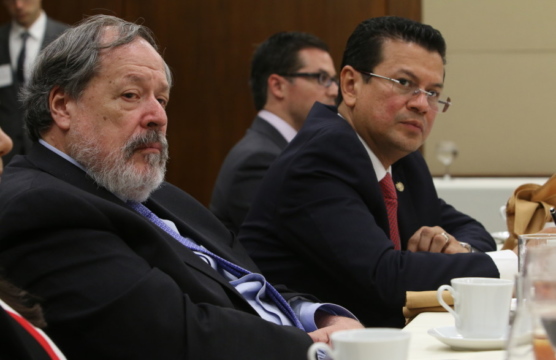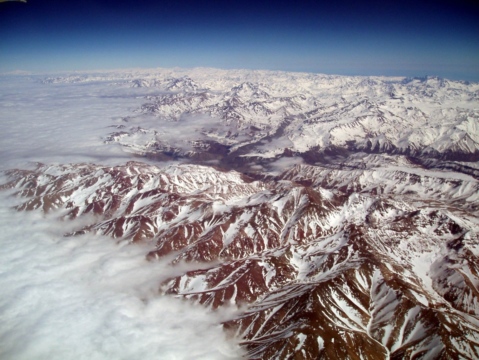
Congressional Testimony: Challenges at the Border
More than 52,000 Central American children, passing through Mexico, have sought entry into the US.
This post is also available in: Español
On June 14, 2022, the Inter-American Dialogue hosted a webinar presenting the main findings of its Task Force on Climate Change in the Northern Triangle. The Dialogue convened this task force, representing diverse perspectives, in 2021 in order to inform a series of reports on how US assistance can improve adaptation in the region given its high vulnerability to climate impacts.
After brief opening remarks by Dr. Rebecca Bill Chavez, president and CEO of the Dialogue, the event was divided into two parts. First, a presentation of the main findings of the three reports was given Lisa Viscidi, non-resident fellow with the Dialogue and senior manager of Deloitte's government and public services practice, and MK Vereen, assistant for the Dialogue’s Energy, Climate Change & Extractive Industries Program. Next, Nate Graham, interim director of the same program, moderated a panel composed of three members of the task force.
Viscidi and Vereen first emphasized the task force’s climate justice approach—the starting point for the analysis was a recognition of the disproportionate impact of climate change on certain population groups (specifically, those affected by forms of marginalization based on ethnicity, gender, age, or income). Then, they presented the main project findings on the impacts of climate change on these groups and on sectors such as agriculture, water, energy, and finance. Afterwards, they discussed recommendations for directing US assistance to better respond to these challenges as part of efforts to alleviate the root causes of migration in the region. They also shared specific recommendations on making this assistance more effective, sustainable, and locally led through engagement with civil society, support for educational programming and access to climate information, subnational government adaptation planning, and partnership with the private sector.
A panel of task force members then complemented the content of the presentation. José Daniel Madrigal, founding member of the youth climate organization Sustenta Honduras, noted that young people are among the sectors that suffer most from the consequences of the climate crisis and a lack of opportunities. Therefore, he proposed, among other measures, the creation of incubators for climate-focused youth organizations as a capacity-building mechanism and a meeting point with governments, the private sector, academia, and other stakeholders. Such a line of action could be linked to other regional initiatives such as the Alliance for Development in Democracy and could also serve to bring citizens and young people closer to climate action through low-cost opportunities such as nature-based solutions.
Graciela Coy, president of Guatemala’s Ak' Tenamit Association, then added that the heavy rains and floods associated with climate change have a greater impact on rural and Indigenous communities, such as the inhabitants of Guatemala's Caribbean coast. In order to counteract the multiplier effect of climate change on migration, improving technical and financial assistance from agencies such as USAID is imperative. Such work requires these agencies to review their local engagement policy as well and increase their drive to cooperate with new partners, with an emphasis on the participation of women, Indigenous peoples, and youth in the implementation of adaptation projects.
Leyla Zelaya, national coordinator of CityAdapt San Salvador, highlighted the importance of adaptation in cities, pointing out that most of the population of the Northern Triangle (around 70 percent in El Salvador) is concentrated in urban areas. This has resulted in ecosystem degradation and a subsequent increase in events such as floods and landslides. She also highlighted the relevance of using cost-effective measures, such as nature-based solutions, that are co-designed in a participatory manner with local communities. The co-benefits of this approach are illustrated by infiltration ditches in the upper parts of the San Salvador volcano, which serve both to collect and use rainwater and to prevent flooding in lower areas.
Finally, the three panelists emphasized two points in relation to international and local action on climate adaptation in the region. On the one hand, they stressed that international adaptation programs should be aligned with instruments like the Paris Agreement and consider the needs and realities of local governments. On the other hand, panelists pointed to a great need to strengthen and expand the network of actors involved in climate adaptation beyond communities and local governments. In particular, they agreed on the value of encouraging the private sector’s involvement in formulating projects that are better structured and oriented towards local needs.
The recording includes sections in both English and Spanish. Simultaneous interpretation was provided through Zoom during the live event.
More than 52,000 Central American children, passing through Mexico, have sought entry into the US.
The outlook for the Northern Triangle is one of both optimism and apprehension.
Though the COP21 negotiations promise to be complex, they also present an opportunity for the region to address existing vulnerabilities.


